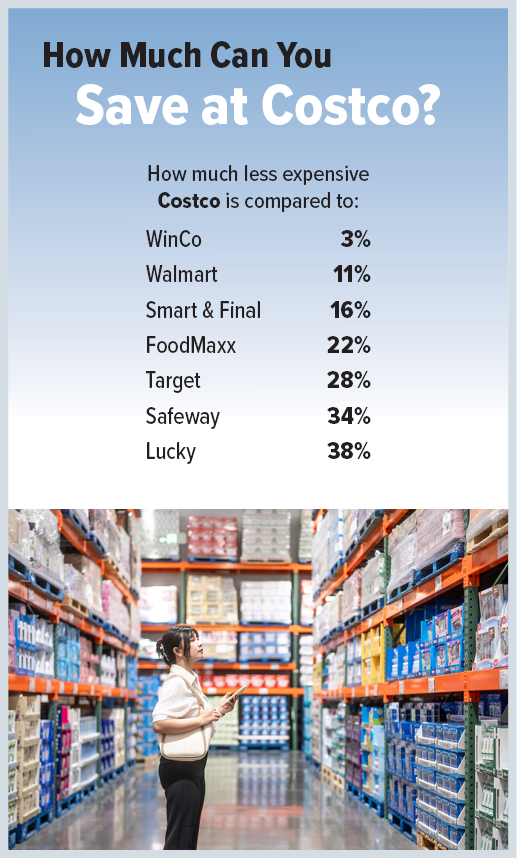How Much Will You Save on Groceries by Shopping at Costco?
Last updated November 2025
For some food shopping, warehouse clubs offer low-cost alternatives to supermarkets. Using our market basket of 150 grocery items, we surveyed prices for Costco and compared them to Walmart, Target, and traditional supermarkets.
The Costco we surveyed carried few if any of the items in our market basket in the usual sizes. But when we looked for the same brands regardless of size, Costco stocked 51 percent of our 150 market basket items.
Since Costco stocked so few items in the sizes of our basic market basket, we looked for items of any size from the same brands. We then used unit prices (for example, price per pound) to calculate Costco’s prices for amounts specified in the market basket. Then we compared the prices of items at Costco with prices for the same brands at several other stores. This is not an apples-to-apples comparison—the sizes of the items priced at Costco were usually larger than the sizes of the items priced at the other stores—so Costco enjoys an advantage in such a comparison.
Compared to Walmart and WinCo, its main local competitors, Costco has lost much of its price edge. The warehouse club’s prices were only three percent lower than WinCo’s and 11 percent lower than Walmart’s.
Although Costco still offers low prices compared to, say, Target and Safeway, it’s more difficult to justify paying Costco’s $65 annual membership fee if you’re happy with WinCo’s grocery offerings.
Costco does continue to earn very high customer ratings for the quality of its meat.



